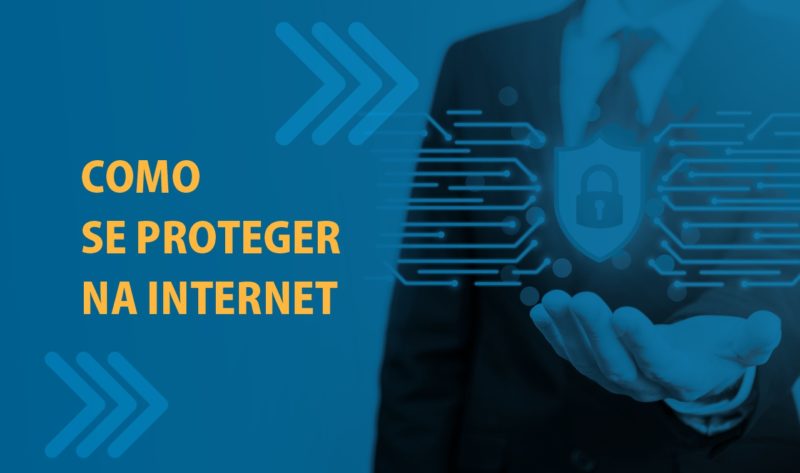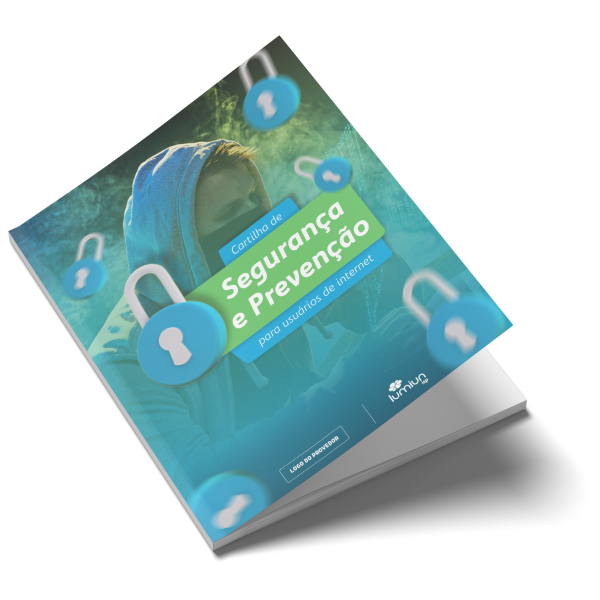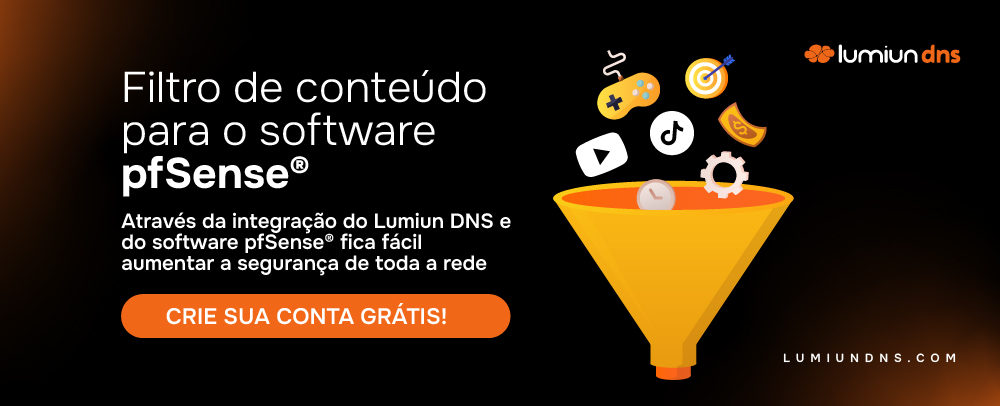In several conversations with numerous internet providers, we realize that the desire to help subscribers protect themselves on the internet is common. But (obviously there would be one, how to educate your users and offer tools to protect the internet?
The benefits of such actions do not only act in favor of the subscriber but also the internet provider, which decreases supported calls, adds value to the provider's portfolio among many other benefits you will see throughout this post.
What are the dangers to use the internet without protection?
Perhaps we have gone through the digital revolution and we have not even noticed. The truth is that the internet is no longer just a tool for leisure and work, and has become a true war for the search for confidential information and cyber attacks in search of money, be it traditional or the very spoken digital coins.
Weekly we publish news related to internet security, and what is not lacking is inputs to fill the newsletter with cyber attacks.
The dangers when surfing the internet are numerous, but among the most common are:
- Virus - There are several types of viruses and all are harmful to the device, acting in different ways and causing various problems such as system slowness, file copy, activity record, among others.
- Malicious Links- Malicious links are spread across ads, emails (including false, coming from known referrals), advertising windows, among others.
- Phishing attacks - Usually through false pages , this fraud aims to purchase personal information from the internet user, trying to induce their visitors to place their data on false sites identical to the true.
- SPAMS-These are mass messages sent unauthorized in order to fill the email box of your receivers.
- Ransomware attacks - In order to encrypt the victim's data, this type of attack is propagated in various ways and usually requests a payment to decrypt the data. Very common and high this year, ransomware attacks have hit many users on the internet.
- EXTORSION - Persons malicious on the internet are looking for financial advantages all the time. Lay users like children and adolescents can easily be persuaded by such people. Care of websites considered harmful or low credibility are important in these cases.
- Inadequate Content - Not all types of internet content can be seen or consumed by all users who sail it. Pornography and violence content for example are inappropriate for children and adolescents, as well as games and bets may not make sense to be consumed by users at their working hours. Inadequate content is one of the most common dangers on the internet and should be taken seriously.
How can the internet provider help the subscriber to protect himself?
Knowledge and information is never in excess. Providers who transmit knowledge to their subscribers maintain a collaboration relationship and also bring benefits to the provider and not just for the subscriber.
Guiding the subscriber about Internet dangers may decrease calls for virus infection or network slowness, whether residential or business for example. In addition, alerting customers about these dangers can generate the sense of concern on the part of the provider with the subscriber, retaining and customer loyalty naturally.
Spoiler : At the end of this text we provide the security and prevention booklet for internet users , which you can customize with your provider logo and offer more knowledge and information to your subscribers.
Protection Tools
Not only by guiding your subscribers, but also providing internet protection tools can add value to the provider's portfolio and make the protection process a little more automated.
There are some added value tools or services (sva) that providers can use. Among the main ones, focused on internet security, are:
- Antivirus - Considered one of the basic and essential systems for internet safety, antiviruses can considerably improve the protection against viruses and malware of computers and cell phones.
- DNS Filter - The DNS filter is a solution for managing DNS query -based access rules, filtering what is allowed or not accessed by the end user. When active and configured correctly, it offers an extra layer of protection, preventing access to websites considered harmful or inadequate for all devices (computer, mobile, TV, tablet, printer, etc.) connected to the internet.
Added value services can bring benefits to subscriber and provider
First, according to Anatel , the added value service (SVA) is any and any service to assist with telecommunications activity. Generally implemented as extra services for internet providers, it is functioning to offer additional customer experiences such as antivirus, video and audio streaming, unlimited access to social networks, content filter among many others.
In the video below you will be able to understand the main differences between SVA and SCM, as well as the benefits of making an SVA available on your provider's portfolio.
As we mentioned earlier, but more succinctly, added value services bring benefits not only to the subscriber, but also to the internet provider:
- Tax Optimization - One of the great benefits for the internet provider is the small tax burden imposed on the added value service. Unlike communication and multimedia service, SVA taxation is governed only by the federal agency and responds to state tax standards, making the use of these services more profitable to the provider, after all, the tax burden is lower.
- Competitive Differential - Offering additional to internet services can interfere with the user's choice of which internet provider will hire. Not only that, useful and active services by the subscriber become a permanence factor, reducing the subscription cancellation numbers.
Security and Prevention Primer for Internet Users
According to an IBGE survey But what makes this data important is not the number of users connected, but the number of people who care about the data security that travel on the internet and the problems that a leak can cause.
Only by 2020 more than 8.4 billion attempts at cyber attacks hit Brazil, so we believe that any internet user deserves to at least have knowledge about the types of cyber attacks and the main ways to protect themselves.
In order to help Internet providers in awareness and delivery of internet security information to your subscribers, we at Lumiun have developed the security and prevention booklet for internet users . The material was specially created for this audience with topics such as:
- What is security on the internet?
-
- Most common cyber attacks
- Good practices Internet safety
- Accounts and passwords
- Social media
- Computer Safety
- Mobile device security
- How can your internet provider help?
The material is completely free and customizable , where you can place the logo and information of your provider.
We hope that this text together with the material we make available, help you and your provider have a relationship of trust and proximity to your subscriber, freely offering more security in the use of the internet.
Until later!












